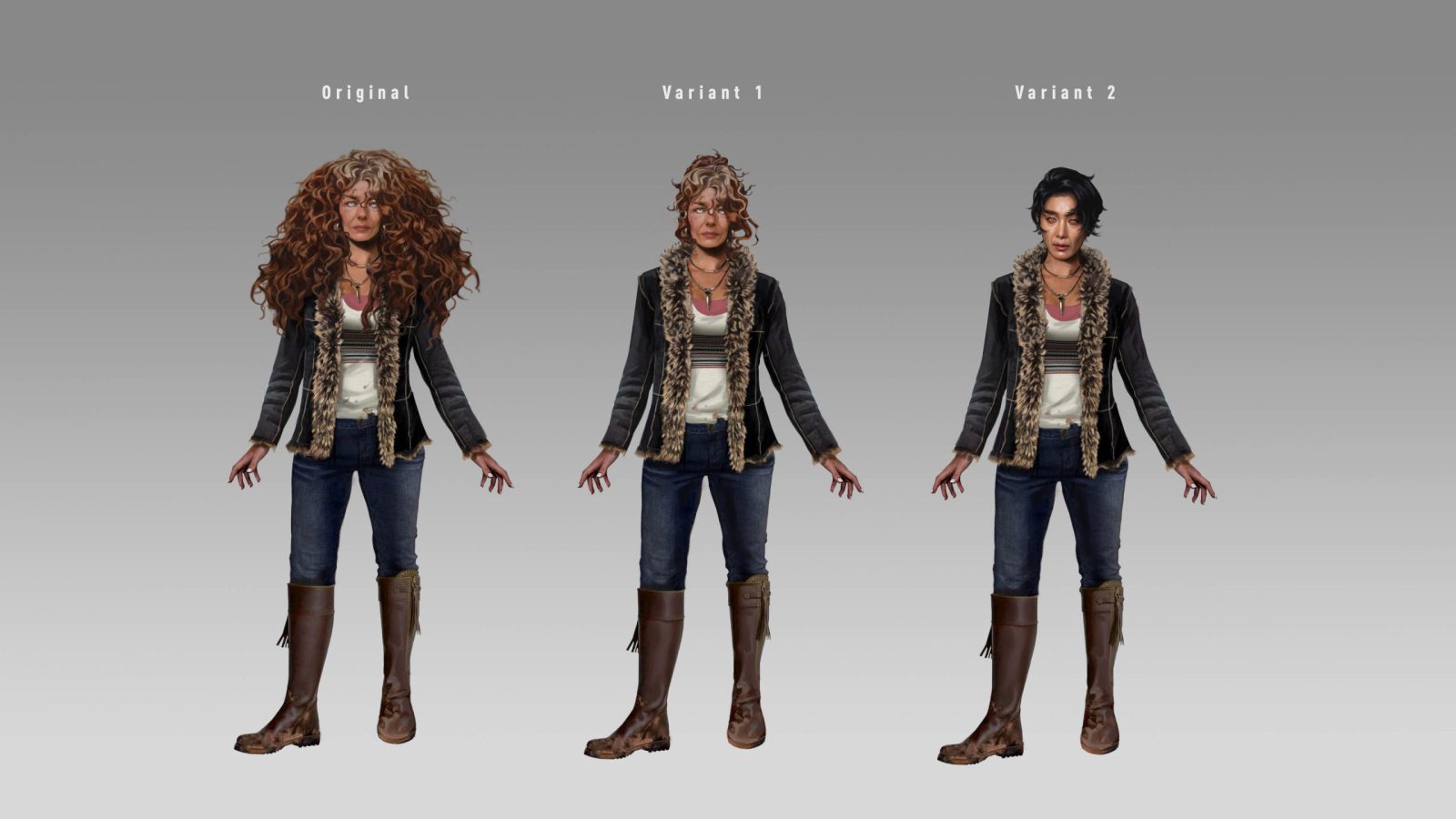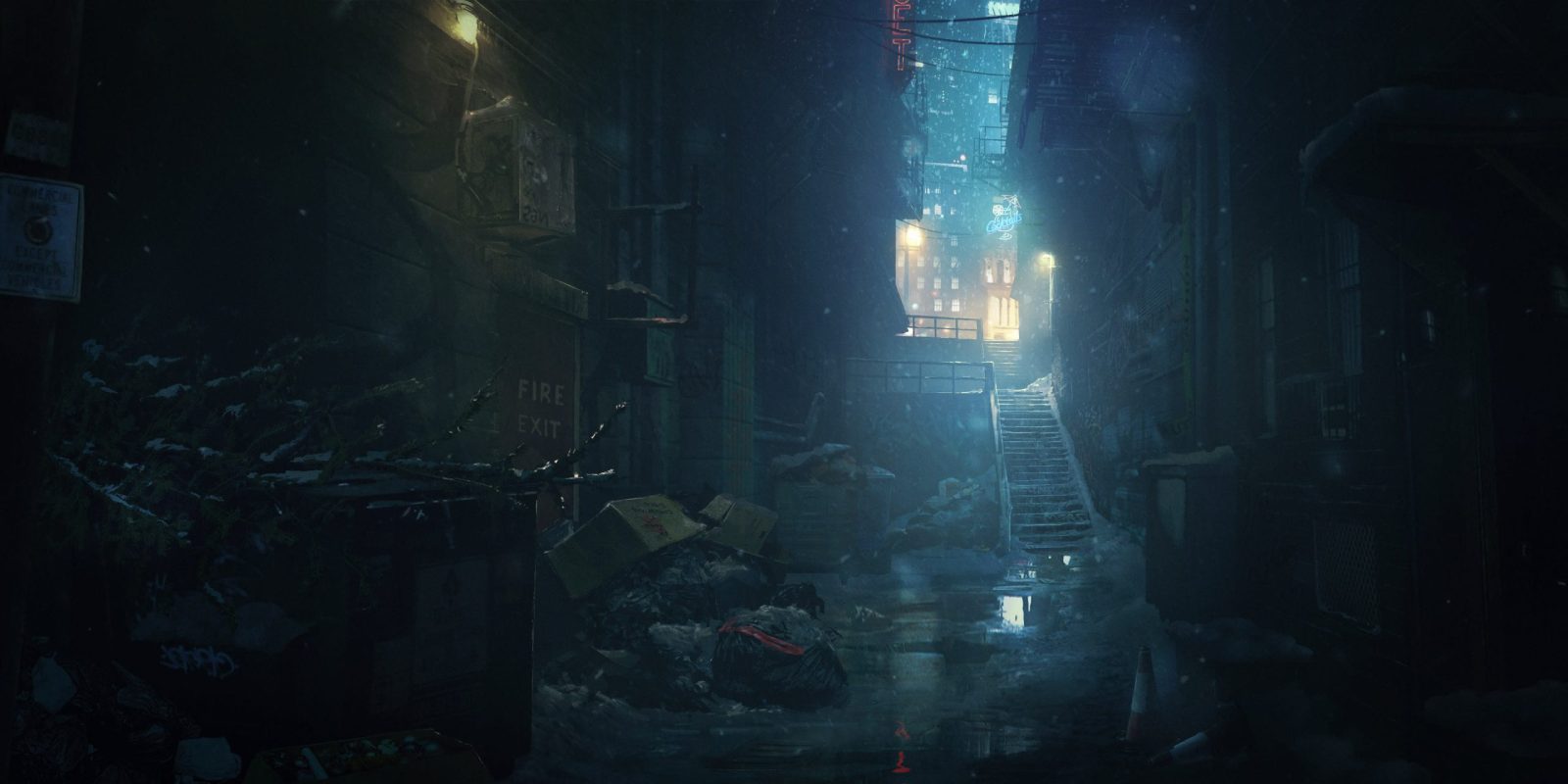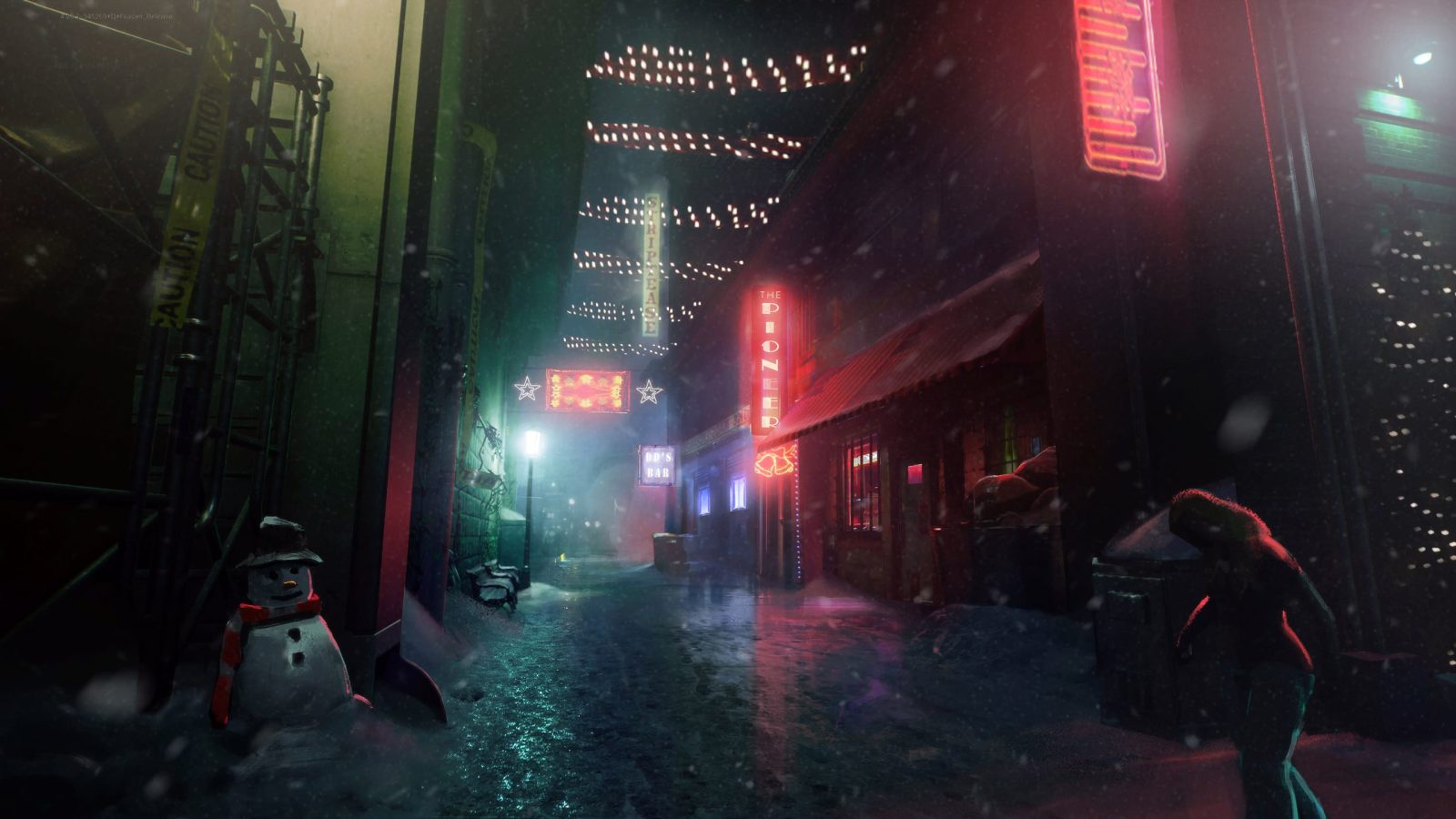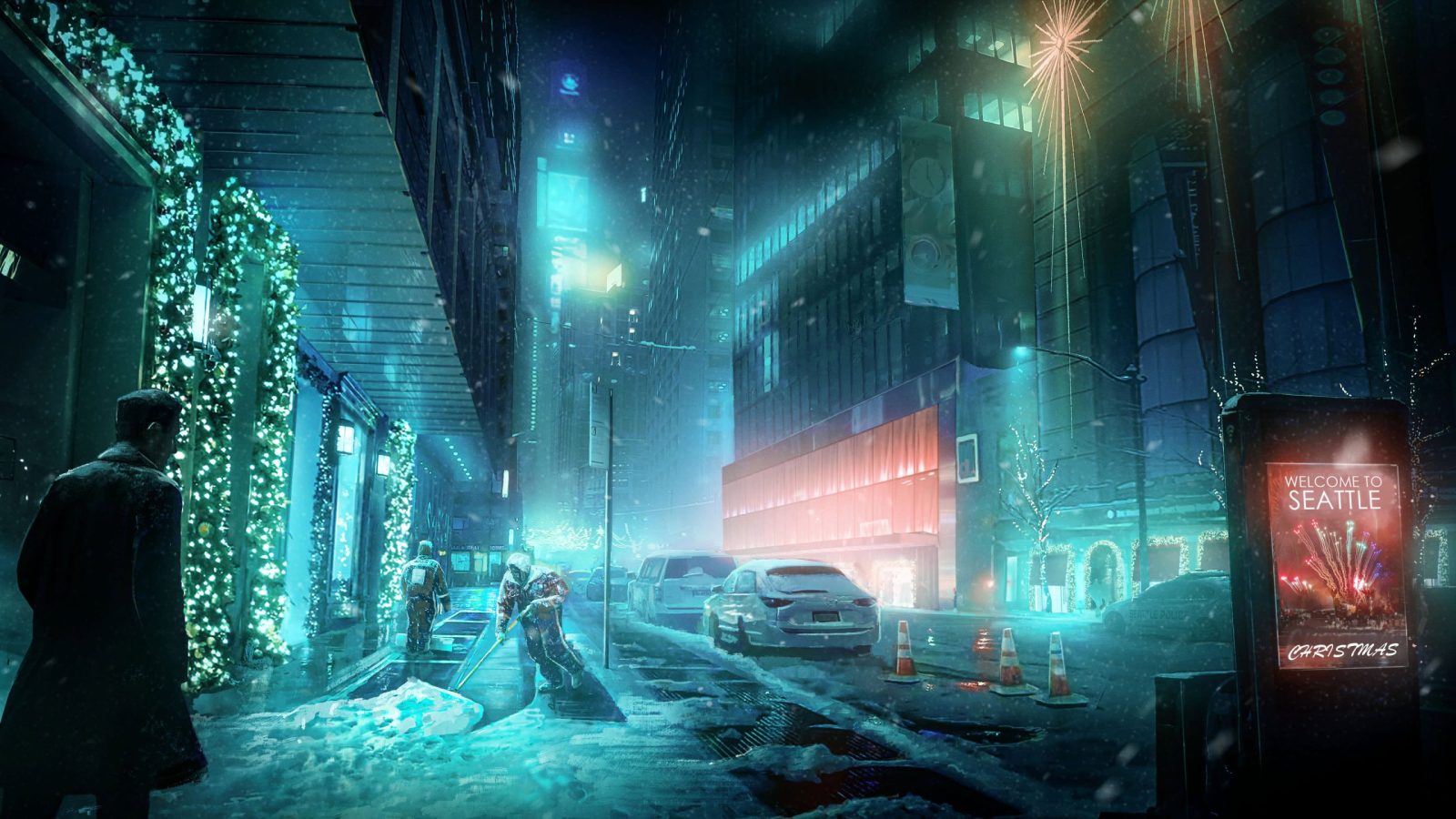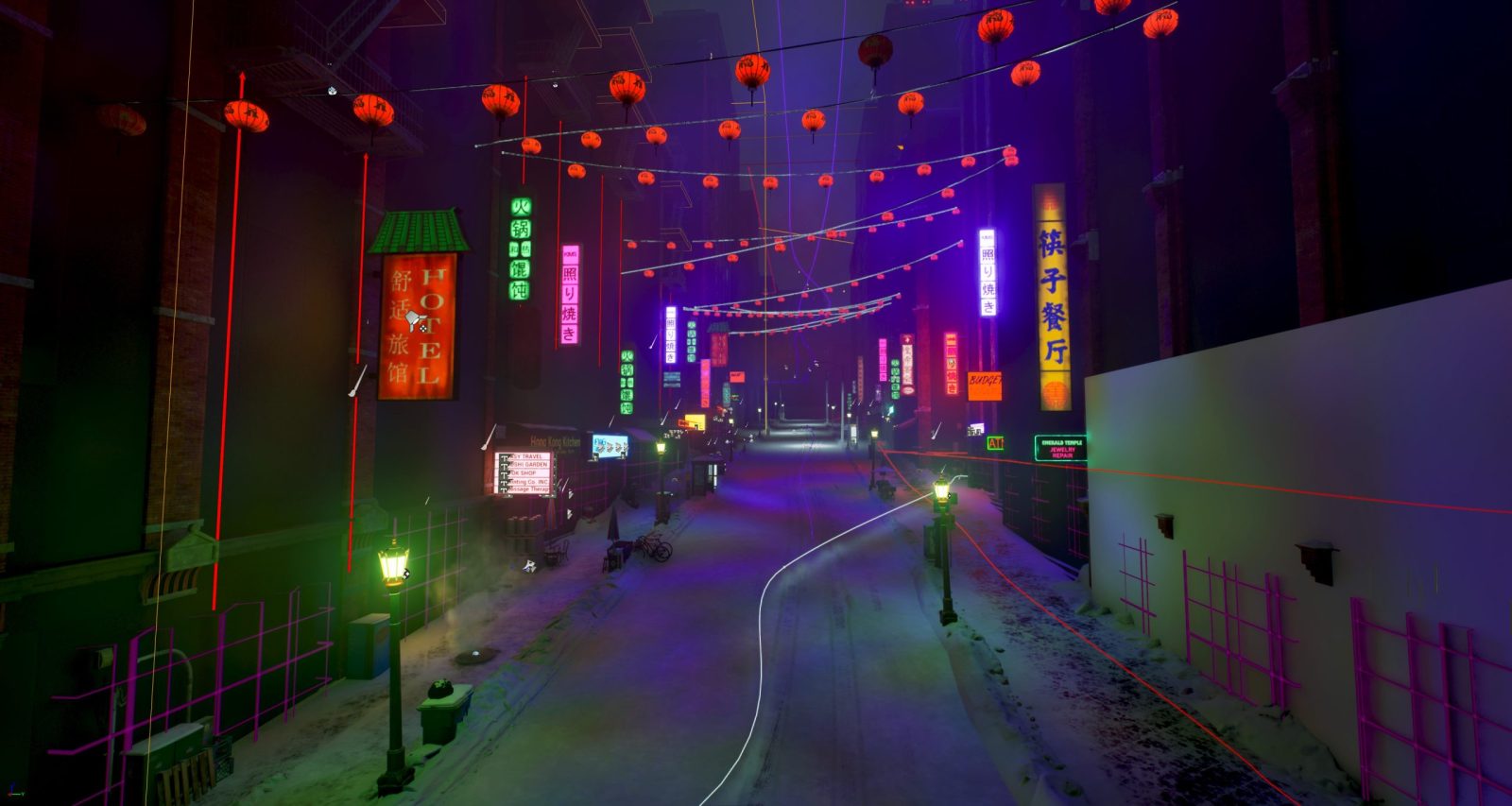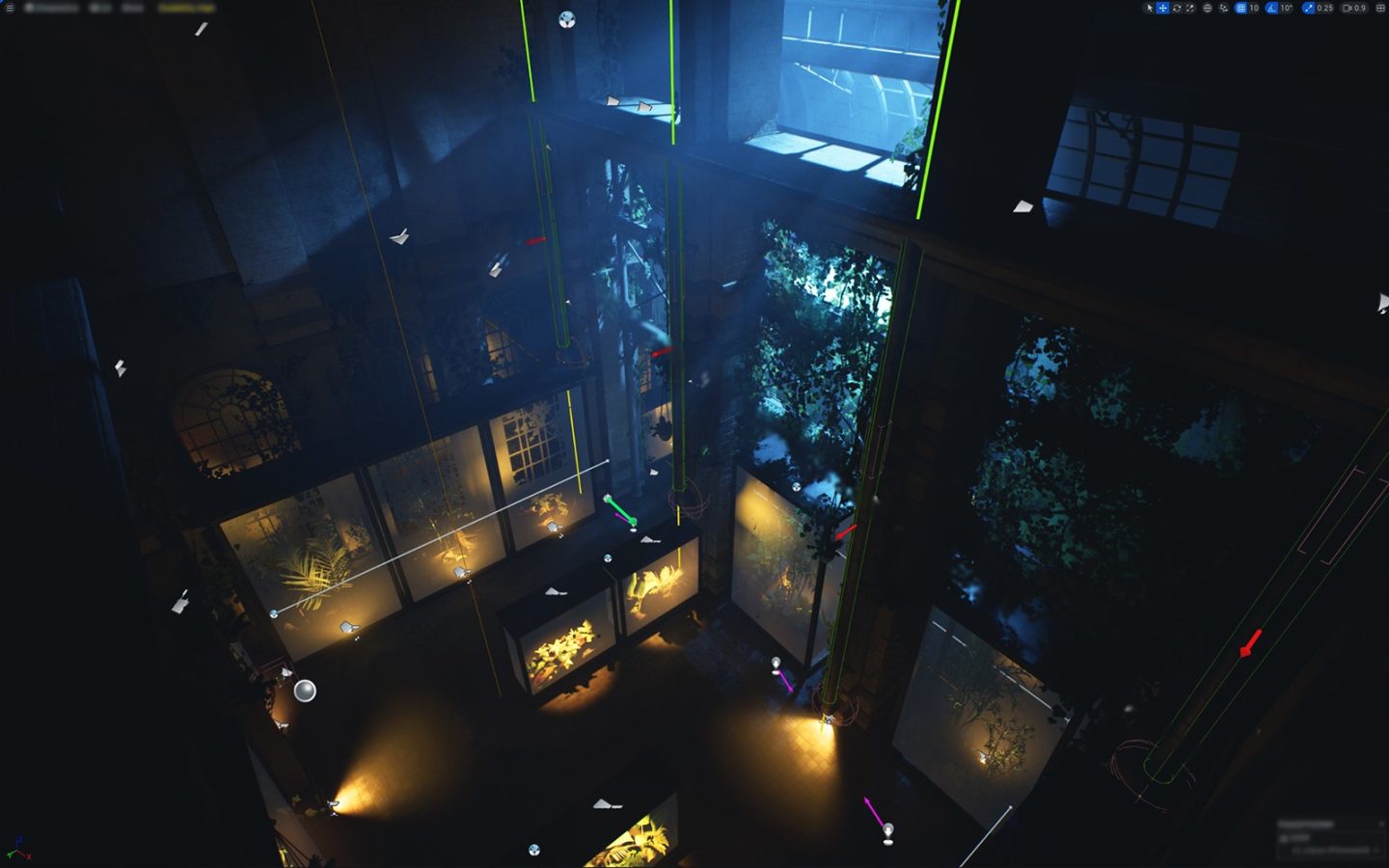The latest dev diary for Vampire: The Masquerade – Bloodlines 2 from Paradox Interactive and The Chinese Room features an in-depth look at how The Chinese Room goes from concept to reality, explaining everything from coding and programming to producing cinematics and interactive dialogue. You can view the blog post here or read below:
Dev Diary #14: What are we up to? Part 2
As summer approaches we wanted to fill you in on a few processes and reflections our team is grappling with. So much going on right now!
Audio
“One aspect I’ve been enjoying about working on Bloodlines 2 from an audio perspective was imagining how a vampire perceives the world around them. A favourite moment of mine was weaving past moments into the soundscape as if we could hear the past itself. While it might sound a bit corny, I enjoyed playing with the idea of being an ancient being capable of sensing beyond their own time. In an abstract way, it added a supernatural feeling to the game rather than just providing linear sound design for the visual world.
I also really enjoyed how the entire audio team were so dedicated into carving out this unique sounding character and world together. We would always present work, give critiques and just refine as much as possible. I am certain Bloodlines 2 will have a truly unique sound when it releases, thanks to the extraordinary efforts of the audio team.” – The Chinese Room’s Sound Designer Corry Young
Concept Art
Nix
“Here are some experimentations of Nix whom you’ll meet in the underground. Although more integrated to the human side of civilisation, we wanted to maintain some of the animalistic feral nature hallmark to the Gangrel clan in her design.”
– The Chinese Room’s Junior Concept Artist Isobel Hine
Pioneer Square Concepts
“In these concepts we were exploring the look and feel of the Pioneer Square section of the city. We were tasked with making sure this area of the city feels cold, atmospheric and is bathed in neon light. One of the main focuses of our art direction is making sure we’re always leaning into this neo-noir look for our world, a high contrast visual identity that is brooding and moody. Additionally, we were tasked with putting together several shopfront ideas that could appear throughout this area of the city.”
– The Chinese Room’s Art Director John McCormack and Lead Concept Artist Michele Nucera
– The Chinese Room’s Senior Concept Artist Jordan Grimmer and Lead Concept Artist Michele Nucera
Financial District Concepts
“Like above, we were also briefed with exploring the look of the financial area of our city. With this we wanted to go in a very different direction, leaning heavily on a more cyan colour palette with high, glass front buildings. We wanted to make sure every area of Seattle feels distinct and instantly recognizable.”
– The Chinese Room’s Lead Concept Artist Michele Nucera
Code / Programming
“Time for an update from code. The team have been working hard on getting the city experience working well. We have been putting the MassAI framework of Unreal 5 through its paces, it’s a new system for simulating crowds and we’ve used it for the pedestrian simulation in our rendition of the streets of Seattle. By leveraging the smart object system, we’ve created interactive elements for pedestrians, such as cash machines and park benches.
But, the crowds also need to chatter as we can’t have everyone walk around in complete silence. We’ve extended our banter system to allow groups of pedestrians and enemy NPCs to talk to each other, enabling general contextual chat about the world and reactions to you as you complete the missions.
We’ve also been extending the combat system to allow many NPCs to fight, and for pedestrians to fight too with a just-in-time switch from the MassAI system to regular instanced characters, and we’ve made them able to fight each other when the circumstances are right – it’s very entertaining.
Other than that we’ve been working hard on optimising the game to run on consoles and keeping the framerate solid on PCs, and the memory footprint small.” – The Chinese Room’s Technical Director Nick Slaven
Design
“For my Quests, I like to lean into the protagonist’s nature as an outsider in a foreign land. Seattle may at first seem inconsequential to an Elder Vampire but, powerful as you are, you’re still at the bottom of the ladder. Phyre must quickly react to a Kindred power structure in chaos and the early missions in the city reflect this.
Rejection by those in power would mean certain befalling, and so Phyre must prove their worthiness to Seattle’s elite. Many of my quests follow this thread of pressure being applied to our protagonist. For players to run the gauntlet through Seattle, deciding which relationships to nurture and which to break.
Seattle is frozen in time under a blanket of snow, waiting for a new leader to emerge. Phyre is weakened and in need of both allies and answers. The weakest soldiers on the street, the Courts, and even the Cops will present challenges for players to navigate, or maybe just straight-up punch in the mouth. Our more open areas present players with more of a choice in their approach to combat and we’ve taken great care in crafting slick traversal options that reinforce that. Can’t wait to show you more!”
– The Chinese Room’s Junior Level Designer Jack Goddard
“In the last Dev Diary, I mentioned how we build our levels to support the game’s awesome traversal system. This time, I’d like to dive deeper into this and some other key considerations when designing levels for Bloodlines 2.
Traversal Mechanics Let’s start with traversal. When designing our spaces, we consider numerous factors to allow you to make the most of your Kindred abilities. Many of our environments would have been built for humans in Seattle, but you are a powerful Vampire, and our spaces need to support this. We have created multiple paths, some that are accessible by humans and some of which are only accessible through using your unique movements, enhancing both gameplay variety and immersion. However, using these vampiric abilities can risk breaking the Masquerade, so these paths are designed to be used discreetly, ensuring you remain hidden from prying human eyes.
Space Purpose The purpose of each space greatly influences its design. Are you likely to be fighting enemies here? If so, the area will look and feel vastly different from one meant for exploration or storytelling. Combat zones are crafted to support various playstyles, from stealth to brawling, and we sometimes design areas to encourage a particular approach to keep gameplay dynamic.
Narrative and Exploration For spaces focused on story and exploration, our approach shifts. Here, the goal is to provide opportunities for discovery and to guide you towards interesting moments organically. These environments are meant to contrast with combat-heavy areas, offering a slower pace. These spaces invite you to linger and delve deeper into the lore of our world.
Balancing the Experience Finally, while each space is carefully crafted to fulfill its specific role, we also ensure a balanced mix throughout the game. The interplay between fast-paced action areas and more serene, narrative-rich environments keeps the gameplay experience fresh and engaging.
In summary, our level design philosophy revolves around maximizing the potential of your Vampire abilities, tailoring spaces to their intended purpose, and maintaining a balanced and engaging pace throughout the game. We can’t wait for you to experience the world we’ve built in Bloodlines 2.”
– The Chinese Room’s Level Designer Amy Lee
Production
“We are recording!
My role in Production supports the cinematics and interactive dialogue pipeline, collaborating with the Narrative team to deliver scripts to the VO studio and planning the workflow with the animation team. This involves a lot of spreadsheets, Miro boards, and multiple overlapping schedules. Despite the logistical challenges, it’s incredibly rewarding when recording starts and we see our nighttime Seattle residents come to unlife —sometimes in unexpected ways!
A crucial step in the process is ensuring everyone involved understands the dialogue branches and character reactions to player choices, maintaining consistent performance across branches. Watching our VO Director and talented cast navigate these complex branches and deliver is truly inspiring.
I feel incredibly fortunate to see this process through. It’s exactly why I joined TCR: to bring engaging narratives to life. I’m thrilled for everyone to interact with these wonderful characters.
I’ve experienced everything from laughter to shivers during some of the VO sessions, and I can’t wait for people to enjoy them just as much as I’ve enjoyed witnessing them.”
– The Chinese Room’s Producer Lee Clarke
Stay tuned to GamingTrend for all your gaming, tech, and entertainment news!

